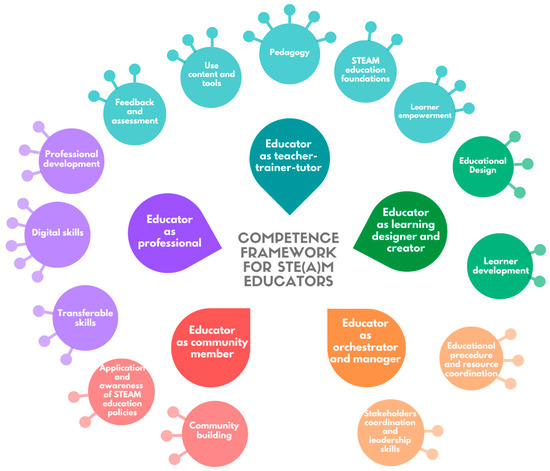Elevating STEAM Education: Teacher Professional Development

Elevating STEAM Education: Teacher Professional Development
In the ever-evolving landscape of education, the integration of STEAM (Science, Technology, Engineering, Arts, and Mathematics) is recognized as a powerful catalyst for preparing students for the future. However, the success of STEAM education hinges not only on innovative curriculum design but also on the continuous development of educators through professional development.
The Significance of STEAM Education
STEAM education represents a departure from traditional teaching methods, emphasizing a holistic and interdisciplinary approach. It transcends individual subjects, fostering critical thinking, creativity, and problem-solving skills. To effectively implement STEAM, teachers must undergo professional development to align their pedagogical strategies with the dynamic nature of this educational framework.
The Evolving Role of Educators in STEAM
- Content Mastery: Professional development in STEAM begins with ensuring teachers have a deep understanding of the subject matter. Mastery of content is crucial as it forms the foundation upon which effective teaching strategies are built.
- Interdisciplinary Teaching Techniques: STEAM encourages educators to break down the silos between subjects. Professional development programs equip teachers with interdisciplinary teaching techniques, enabling them to seamlessly integrate science, technology, engineering, arts, and mathematics in their lessons.
- Project-Based Learning: Embracing project-based learning is a key aspect of STEAM education. Professional development empowers teachers to design and implement projects that engage students in hands-on, real-world problem-solving, fostering a deeper understanding of concepts.
Addressing Challenges Through Ongoing Professional Development
Implementing STEAM education in classrooms is not without its challenges. Limited resources, varying student backgrounds, and evolving technological landscapes require teachers to adapt continually. Professional development provides a platform for educators to share experiences, address challenges, and collaborate on innovative solutions.
Incorporating Technology in STEAM Teaching
- Digital Literacy: As technology is integral to STEAM fields, professional development ensures that teachers are digitally literate. This includes incorporating relevant tools, apps, and online resources to enhance the learning experience.
- Virtual Collaboration: With the global nature of technology, professional development equips teachers with the skills to facilitate virtual collaboration among students. This prepares them for the interconnected and collaborative nature of STEAM industries.
Cultivating a Growth Mindset in Teachers
Professional development in STEAM education not only imparts knowledge and skills but also cultivates a growth mindset among educators. This mindset encourages a positive attitude towards challenges, fosters resilience, and instills a commitment to lifelong learning.
Building Communities of Practice
- Collaborative Learning Networks: Establishing communities of practice is a hallmark of effective professional development. Educators benefit from collaborative learning networks where they can share best practices, exchange ideas, and collectively contribute to the advancement of STEAM education.
- Mentorship Programs: Mentorship plays a pivotal role in teacher development. Professional development programs often include mentorship components, pairing experienced STEAM educators with those seeking guidance, creating a supportive learning environment.
The Impact of Teacher Professional Development on Student Success
Research consistently demonstrates a positive correlation between effective teacher professional development in STEAM and student success. Students taught by educators who undergo continuous development tend to exhibit increased interest, higher achievement levels, and a better grasp of real-world applications of STEAM concepts.
Strategic Partnerships for Sustainable Development
Collaborations between educational institutions, government bodies, and industry leaders are essential for sustainable professional development in STEAM education. These partnerships can provide resources, expertise, and support to ensure that teachers receive ongoing training that aligns with the evolving demands of the STEAM landscape.
Explore more about STEAM education and teacher professional development here.



